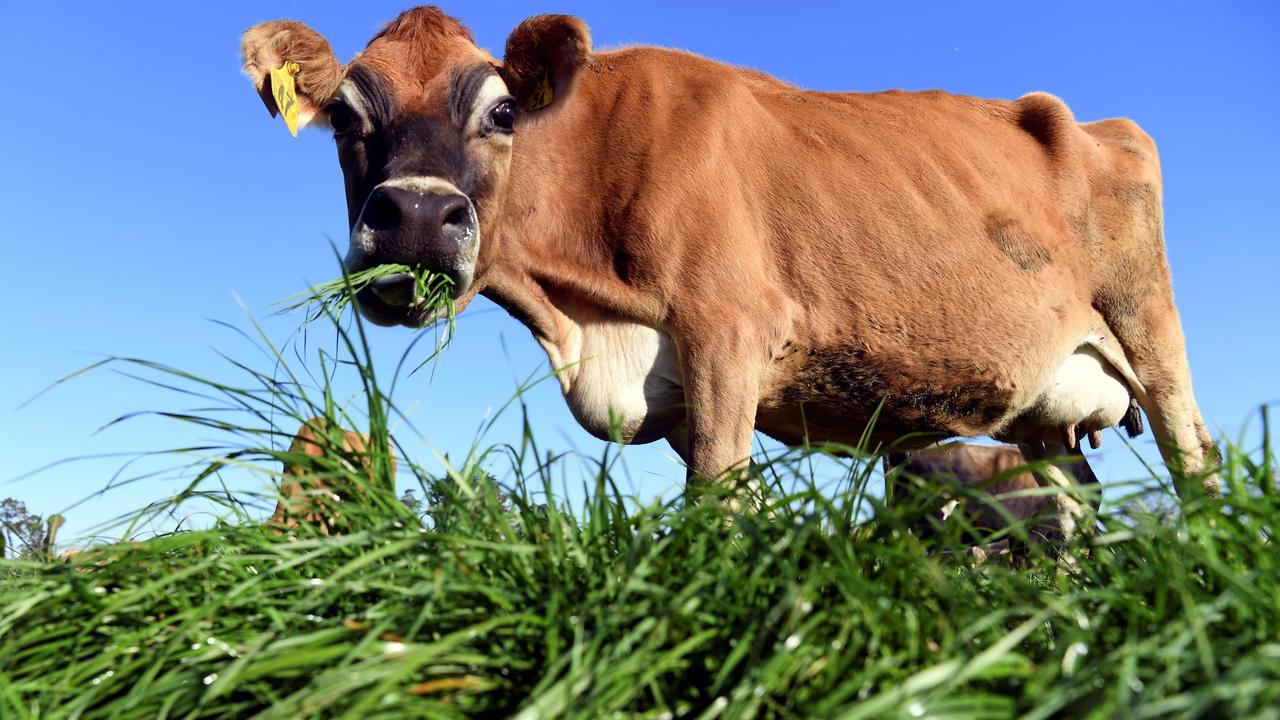Hoarding mentality could lead to unprecedented food wastage, NFF says
As shoppers raid supermarket shelves to stock-up their pantries, food producers worry much of it will go to waste.

AUSTRALIA could be on the brink of a food wastage crisis as shoppers in a coronavirus-induced panic continue to stockpile non-perishable food.
Supermarkets across the nation have been cleared of rice, pasta, tinned food, long-life milk and oats as shoppers prepare to bunker down at home amid new government resections on movement to stymie the spread of coronavirus.
But National Farmers’ Federation chief executive Tony Mahar has warned that panic buying could lead to unprecedented food wastage.
“People need to buy sensibly and understand there is no risk to the food supply chain. We produce enough food to feed 75 million people,” Mr Mahar said. “Longer-term, I really hope there isn’t an issue with food wastage because of all the resources that go into making it … It could be a major unintended consequence of this.”
Australian Trucking Association chief executive Ben McGuire said the strain on the freight industry to restock supermarkets was unprecedented, and urged consumers to consider whether they had the ability to store food safely.
He argued that it was safer to keep food in purpose-built storage within the supply chain rather than in households.
“People may end up with a whole lot of product eaten by weevils or with mould,” Mr McGuire said.
He said the industry was also worried about a post-coronavirus world, when demand for many products crashed. “While there its high demand now, there is a lot of the industry that has gone quiet already. There are a lot of business who will suffer, and not just because of stockpiling (but the economic implications brought on by coronavirus).
The Federal Government estimated food waste costs the Australian economy $20 billion a year.
AUSVEG chief executive James Whiteside, who heads Australian vegetable growers’ peak body, said the fresh produce sector had been less exposed to stockpiling due to the shorter shelf life of the goods.
“There has been a general spike in demand for everything but our sector is less exposed because of the perishable nature of the products,” he said. “You can’t store a month’s worth of spinach.
However vegetable grower Chris Schreurs, of Schreurs and Sons, a major supplier celery and salad greens supplier for Coles, Woolworths and ALDI, said the business was fielding daily calls for more orders.
“People who don’t normally are ordering everyday. No one wants empty shelves so there’s a bit of pressure to get that extra box of celery or leaf out,” he said, adding that prices were up too, in part due to the additional demand but also due to weather conditions over summer.
Freshmark chief executive James Kellaway, who represents the NSW fresh produce industry, said there has been a spike in demand for heavy produce such as pumpkins, potatoes and to a lesser extent, carrots.
“There was a period last week where in the Sydney market it was hard to find a potato for a 24-48-hour period,” he said, adding the vegetable was now in plentiful supply.
Mr Kellaway said while a “hoarding mentality” had led shoppers to build-up stock levels of certain items in their pantries, a sharp fall in demand once the coronavirus had subsided was unlikely.



